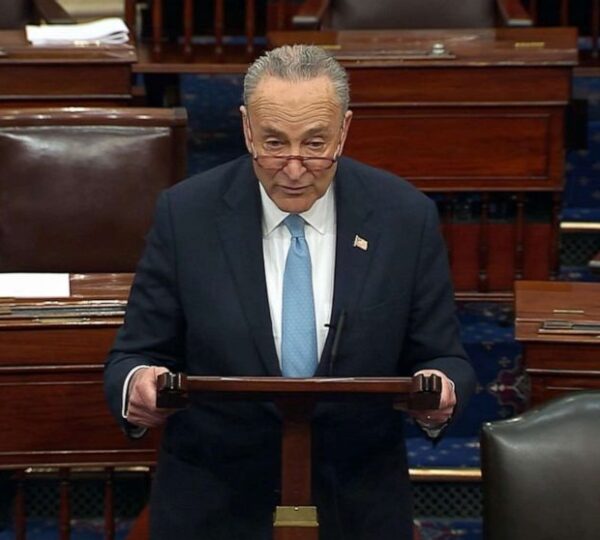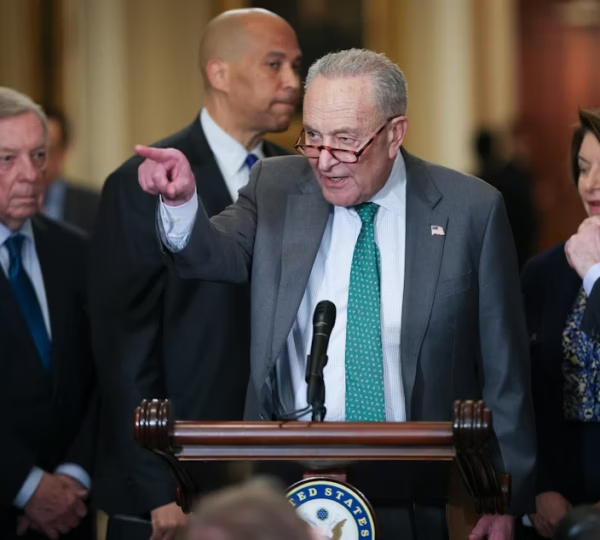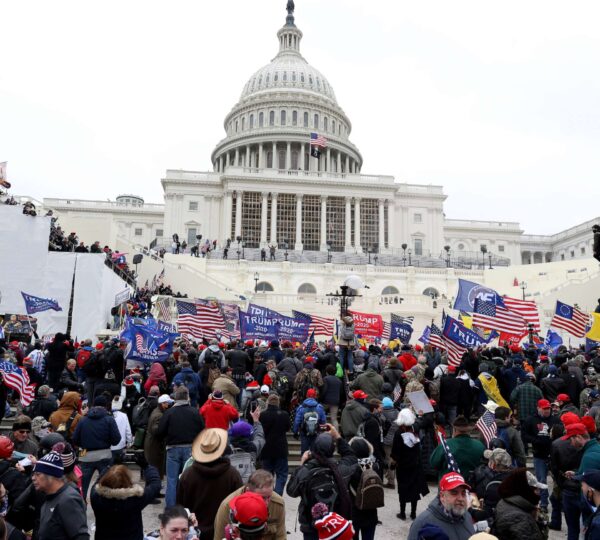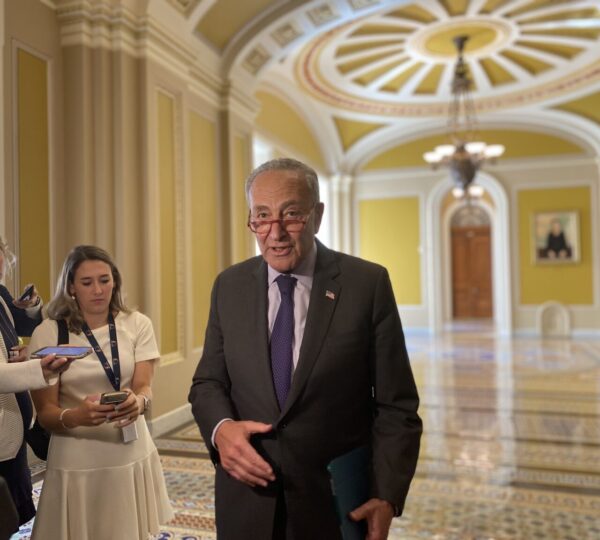Senate Minority Leader Chuck Schumer recently shocked the political world by urging Americans to “forcefully rise up” against the Trump administration.
His comments have sparked widespread debate across social media, news outlets, and political forums.
According to Schumer, the current administration is displaying signs of tyranny and is weaponizing the justice system.
He said, “It is now just a hallmark of tyrannical, autocratic dictatorship societies that they use the prosecutorial department as a political weapon.”

Schumer further insisted that “every American should be forcefully rising up against this,” words that have alarmed many analysts and citizens.
Critics argue that calling for a “forceful uprising” by an elected official is both dangerous and irresponsible.
Supporters, however, claim that Schumer is highlighting abuses of power and speaking out to protect democracy.
Over the past four years, Schumer has been vocal about investigations into political figures, which has only heightened partisan tensions.

Observers point out that while political rhetoric in the U.S. can be heated, advocating for physical or forceful action is rare and controversial.
The Trump administration responded to Schumer’s remarks by emphasizing law, order, and the rule of law, criticizing the senator’s statements as provocative.
Political experts warn that such language could inflame divisions and lead to unrest if misinterpreted by the public.
Social media platforms have been flooded with reactions, with some supporting Schumer’s call and others condemning it as extreme.

Historically, Democrats and Republicans have engaged in intense rhetoric, but statements suggesting forceful uprisings cross a line that experts consider highly sensitive.
Legal analysts note that words like “forceful uprising” can have serious implications under U.S. law if interpreted as a call to action.
Some commentators argue that Schumer’s comments reflect broader frustrations with perceived governmental overreach.
Meanwhile, others see it as political theater aimed at energizing a party base amid upcoming elections.

The discussion surrounding Schumer’s speech has highlighted the deep polarization in American politics today.
Advocates for measured political discourse emphasize the importance of responsible language from elected leaders.
As political tensions rise, experts suggest that maintaining civility and focusing on policy solutions is critical for national stability.
The nation continues to watch closely as Schumer’s remarks reverberate across news networks, sparking debate, controversy, and reflection on the role of political rhetoric in democracy.
Senate Minority Leader Chuck Schumer recently shocked the political world by urging Americans to “forcefully rise up” against the Trump administration.
His comments have sparked widespread debate across social media, news outlets, and political forums.
According to Schumer, the current administration is displaying signs of tyranny and is weaponizing the justice system.
He said, “It is now just a hallmark of tyrannical, autocratic dictatorship societies that they use the prosecutorial department as a political weapon.”

Schumer further insisted that “every American should be forcefully rising up against this,” words that have alarmed many analysts and citizens.
Critics argue that calling for a “forceful uprising” by an elected official is both dangerous and irresponsible.
Supporters, however, claim that Schumer is highlighting abuses of power and speaking out to protect democracy.
Over the past four years, Schumer has been vocal about investigations into political figures, which has only heightened partisan tensions.

Observers point out that while political rhetoric in the U.S. can be heated, advocating for physical or forceful action is rare and controversial.
The Trump administration responded to Schumer’s remarks by emphasizing law, order, and the rule of law, criticizing the senator’s statements as provocative.
Political experts warn that such language could inflame divisions and lead to unrest if misinterpreted by the public.
Social media platforms have been flooded with reactions, with some supporting Schumer’s call and others condemning it as extreme.

Historically, Democrats and Republicans have engaged in intense rhetoric, but statements suggesting forceful uprisings cross a line that experts consider highly sensitive.
Legal analysts note that words like “forceful uprising” can have serious implications under U.S. law if interpreted as a call to action.
Some commentators argue that Schumer’s comments reflect broader frustrations with perceived governmental overreach.
Meanwhile, others see it as political theater aimed at energizing a party base amid upcoming elections.

The discussion surrounding Schumer’s speech has highlighted the deep polarization in American politics today.
Advocates for measured political discourse emphasize the importance of responsible language from elected leaders.
As political tensions rise, experts suggest that maintaining civility and focusing on policy solutions is critical for national stability.
The nation continues to watch closely as Schumer’s remarks reverberate across news networks, sparking debate, controversy, and reflection on the role of political rhetoric in democracy.
